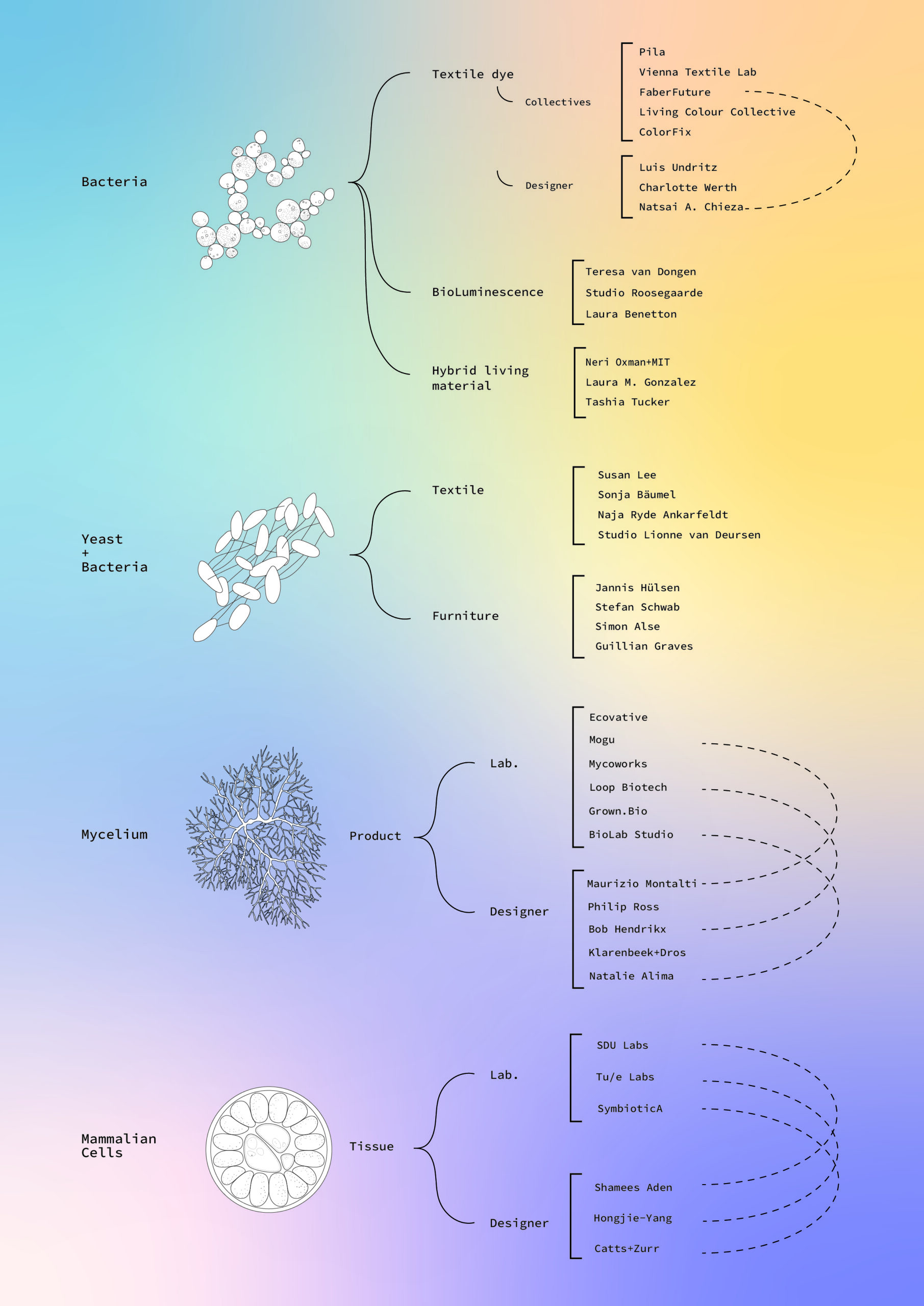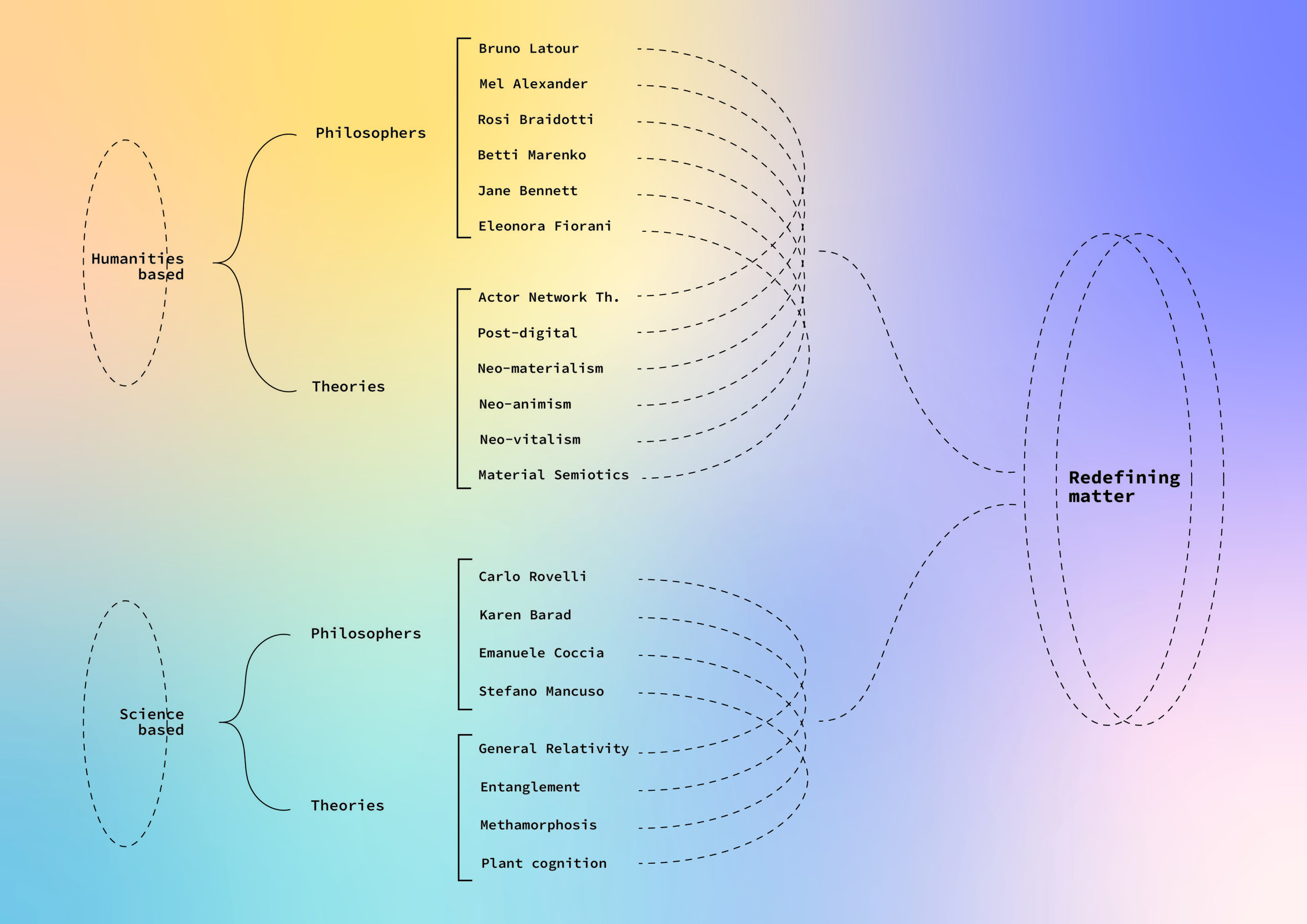Matter’s Life: Speculative Biodesign Practices Toward a New Materialism.
di Chiara Scarpitti e Annarita Bianco
For Nature/With Nature: New Sustainable DesignScenarios. Springer
Series in Design and Innovation , vol 38, 357–370. Springer, Cham.
#Matter #New-materialism #Contemporary philosophies
#Biodesign #Post-anthropocentrism #Synthetic biology.
The contribution investigates the theme of new materiality through the interference between two approaches: one theoretical and critical, the second one analytical and cartographic. The intertwining of these two perspectives
enables us to recognise and comprehend the genesis of a novel approach to shaping matter. Adopting an anti-dualistic and anti-hierarchical approach allows us to expand our vision beyond the human-centric viewpoint by recognising the
intrinsic interdependence of humans and non-human entities. Such a paradigm shift leads to considering a different design strategy that benefits humans and the environment.
The case studies examined progress towards the complete interpenetration of humanity and nature: the selected artefacts embody a new ecological vision that materialises the total interpenetration between subject and object. The terrestrial scale is the latest design dimension, as each design contribution fits within a global, connected ecological environment marked by multiple agents.
Highlighting how all entities are entwined in an interdependent network, design culture moves toward a co-evolutionary perspective, which fosters a renovated coexistence among heterogeneous living species and kingdoms. In terms of technology, the confluence of a wide range of disciplines, such as biotechnology, material science and digital computation, defines a hybrid territory in which synthetic and biological are being reshuffled. Through illustrated maps, the essay explores a range of philosophical theories, bio-designers and research centres which reflect on the meaning of the matter in order to develop new productive metaphors. They serve as a register of knowledge for a new vision of materiality.
Read here.

